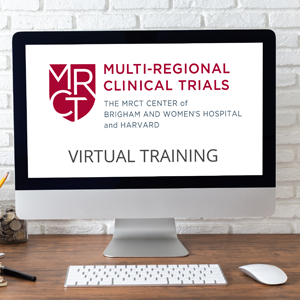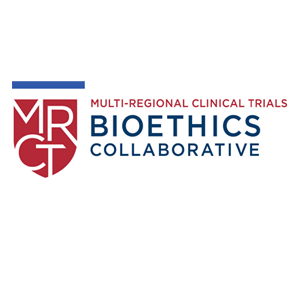The MRCT Center 2022 Impact Report
Insight. Innovation. Impact.
Welcome
The year 2022 felt, at once, like forever and no time at all. We’re all learning to move forward in a world that won’t stay still long enough to let us learn. What we are really learning is to be adaptable, flexible, and resilient. 2020 brought us a global pandemic, and 2021 brought us—with unprecedented speed, cooperation, investment, and rigor, based in good science—treatments and vaccines, diagnostics, new technologies, among others. But as we learned to live with COVID-19, COVID-19 learned to live with us. Deaths have decreased, but infections have not, and yet masks are (largely) coming off, traffic is back on the road, and nothing is the same. 2022 is not a ‘new normal,’ but an evolving normal, and we are learning to live with, if not embrace, that evolution.
“Expect the unexpected” has greater resonance now, it seems, than ever. It is not only infections that require attention and reevaluation of our current state and, in our more circumscribed world, of clinical research. The declaration of war in Ukraine demanded, inter alia, attention to the safety and welfare of clinical trial participants. We have learned that investment in infrastructure, collaboration, and cooperation—across all sectors of the clinical research ecosystem—is foundational to any coordinated response to disruption. Grounded in that response is the commitment to all populations across the globe. And in our work this year, and in the pages that follow, you will see some of our contributions to that commitment in the focus on inclusion of diverse populations, often minoritized and marginalized, and in our commitment to training and education, provision of resources, and capacity building, among others. We look forward to your review and comment.
The unexpected death of Dr. Paul Farmer in February 2022 prompted each of us at the MRCT Center, the Division of Global Health Equity of Brigham and Women’s Hospital, and beyond—to step back and consider our personal role, efforts, and commitment to this work.

Sarah White, MPH
Executive Director

Barbara Bierer, MD
Faculty Director

Mark Barnes, JD, LLM
Faculty Co-Director
MRCT Center Project Highlights
The MRCT Center’s multidisciplinary teams collaborate to identify challenges and deliver ethical, actionable, and practical solutions for the global clinical trial enterprise, with a focus on multinational clinical research.

Advancing The Quality of Clinical Trial Enterprise
Improving the quality and reporting of clinical trials
Advancing the Quality of Clinical Trial Enterprise

Aligning Stakeholders to Facilitate Pediatric Access to Medicines
Improving communications and data to improve access
Aligning Stakeholders to Facilitate Pediatric Access to Medicines

Capacity Building For Clinical Research and Ethics
Continuous learning for a changing regulatory and ethics landscape
Capacity Building For Clinical Research and Ethics

Community Resources
Empowering patients, participants, and the public to make informed choices
Community Resources

Data Sharing and Privacy
The impact of data sharing and privacy regulations on research
Data Sharing and Privacy

DIVERSITY, INCLUSION, AND EQUITY IN CLINICAL RESEARCH
Equity by design
Diversity, Inclusion, and Equity in Clinical Research

HEALTH LITERACY IN CLINICAL RESEARCH
Clear and understandable research for everyone
Health Literacy in Clinical Research

A FRAMEWORK FOR POST-TRIAL RESPONSIBILITIES
Continued access to investigational drugs and devices after trial completion.
A Framework for Post-Trial Responsibilities

Promoting Global Clinical Research in Children
Working to ensure children are protected in and through clinical research
Promoting Global Clinical Research in Children

Return of Results to Study Participants
Working towards returning individual and study research results to participants
Return of Results to Study Participants

The Ethics of Decentralized Clinical Trials
Harmonizing ethical review of decentralized clinical trials
The Ethics of Decentralized Clinical Trials

BIOETHICS COLLABORATIVE
Examining complex ethical issues in multi-national clinical trials
Bioethics Collaborative

RESEARCH, DEVELOPMENT, AND REGULATORY ROUNDTABLE (R3)
Addressing legal and regulatory issues in international clinical research
Research, Development, and Regulatory Roundtable (R3)

Looking Ahead to 2023
Insight, Innovations, Impact
Looking Ahead to 2023
Publications & Presentations
MRCT Center Leadership, Senior Advisors, and team members regularly contribute commentaries and articles to academic journals. The MRCT Center has also hosted several webinars throughout the year. Selected publications and presentations over this past year are available here.
Select Publications
Select Presentations
We invite you to view all MRCT Center resources.

Get Involved
The MRCT Center engages a diverse group of stakeholders to define our work and develop and implement our solutions. We welcome members of industry, academia, government, non-profit organizations, patient advocacy and patients to collaborate with some or all of our projects. Want to join the effort? Contact us!
Thank you to our External Advisory Board, Executive Committee, and Steering Committee for their continued support. Your contributions ensure that we, collectively and collaboratively, commit to the ethical conduct of clinical trials across the globe. Find out how to become a sponsor.

Follow Us
Sign Up For The MRCT Center Newsletter